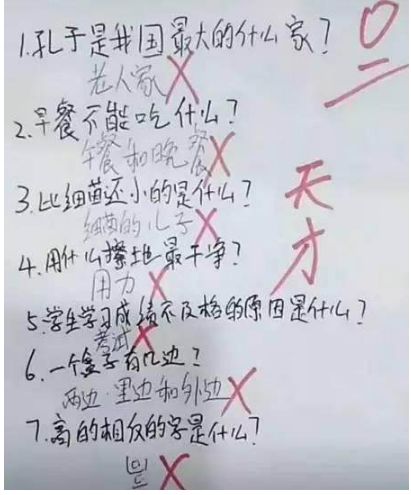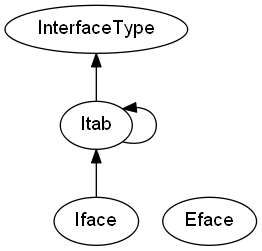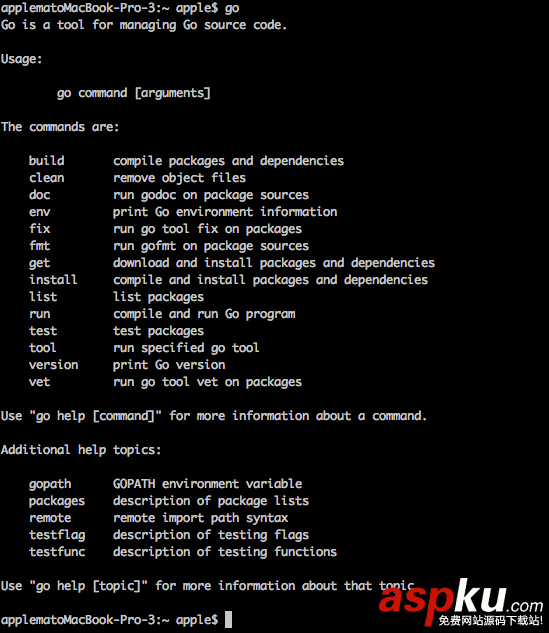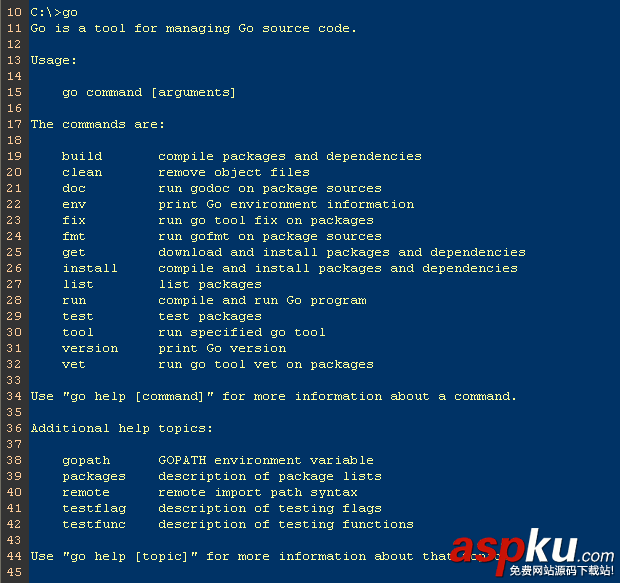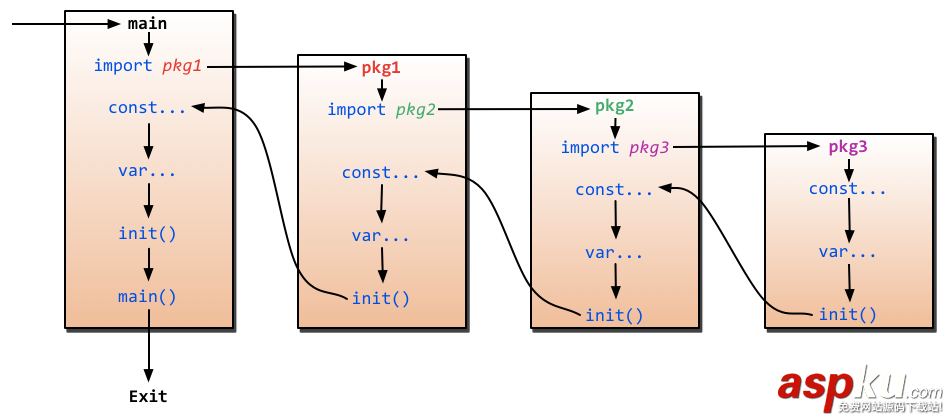if语句
if语句包含一个布尔表达式后跟一个或多个语句。
语法
if语句在Go编程语言的语法是:
if(boolean_expression)
{
/* statement(s) will execute if the boolean expression is true */
}
如果布尔表达式的值为 true,那么if语句里面代码块将被执行。如果if语句的结束(右大括号后)布尔表达式的值为false,那么语句之后第一行代码会被执行。
流程图:
例子:
package main
import "fmt"
func main() {
/* local variable definition */
var a int = 10
/* check the boolean condition using if statement */
if( a < 20 ) {
/* if condition is true then print the following */
fmt.Printf("a is less than 20/n" )
}
fmt.Printf("value of a is : %d/n", a)
}
让我们编译和运行上面的程序,这将产生以下结果:
- a is less than 20;
- value of a is : 10
if...else语句
if语句可以跟着一个可选的else语句,布尔表达式是假时它被执行。
语法
在Go编程语言中的if ... else语句的语法是:
if(boolean_expression)
{
/* statement(s) will execute if the boolean expression is true */
}
else
{
/* statement(s) will execute if the boolean expression is false */
}
如果布尔表达式的值为true,那么if代码块将被执行,否则else代码块将被执行。
流程图:
例子:
package main
import "fmt"
func main() {
/* local variable definition */
var a int = 100;
/* check the boolean condition */
if( a < 20 ) {
/* if condition is true then print the following */
fmt.Printf("a is less than 20/n" );
} else {
/* if condition is false then print the following */
fmt.Printf("a is not less than 20/n" );
}
fmt.Printf("value of a is : %d/n", a);
}
当上述代码被编译和执行时,它产生了以下结果:
- a is not less than 20;
- value of a is : 100
if...else if...else 语句
if语句可以跟着一个可选的else if ... else语句,这是非常有用的使用单个 if...else if 语句声明测试各种条件。
当使用if , else if , else语句有几点要记住使用:
if可以有零或一个else,它必须跟从else if后面。
一个if可以有零到个多else if并且它们必须在else之前。
一旦一个else if测试成功,其它任何剩余else if将不会被测试。
语法
if...else if...else在Go编程语言中语句的语法是:
if(boolean_expression 1)
{
/* Executes when the boolean expression 1 is true */
}
else if( boolean_expression 2)
{
/* Executes when the boolean expression 2 is true */
}
else if( boolean_expression 3)
{
/* Executes when the boolean expression 3 is true */
}
else
{
/* executes when the none of the above condition is true */
}
例子:
package main
import "fmt"
func main() {
/* local variable definition */
var a int = 100
/* check the boolean condition */
if( a == 10 ) {
/* if condition is true then print the following */
fmt.Printf("Value of a is 10/n" )
} else if( a == 20 ) {
/* if else if condition is true */
fmt.Printf("Value of a is 20/n" )
} else if( a == 30 ) {
/* if else if condition is true */
fmt.Printf("Value of a is 30/n" )
} else {
/* if none of the conditions is true */
fmt.Printf("None of the values is matching/n" )
}
fmt.Printf("Exact value of a is: %d/n", a )
}
让我们编译和运行上面的程序,这将产生以下结果:
- None of the values is matching
- Exact value of a is: 100
| |











